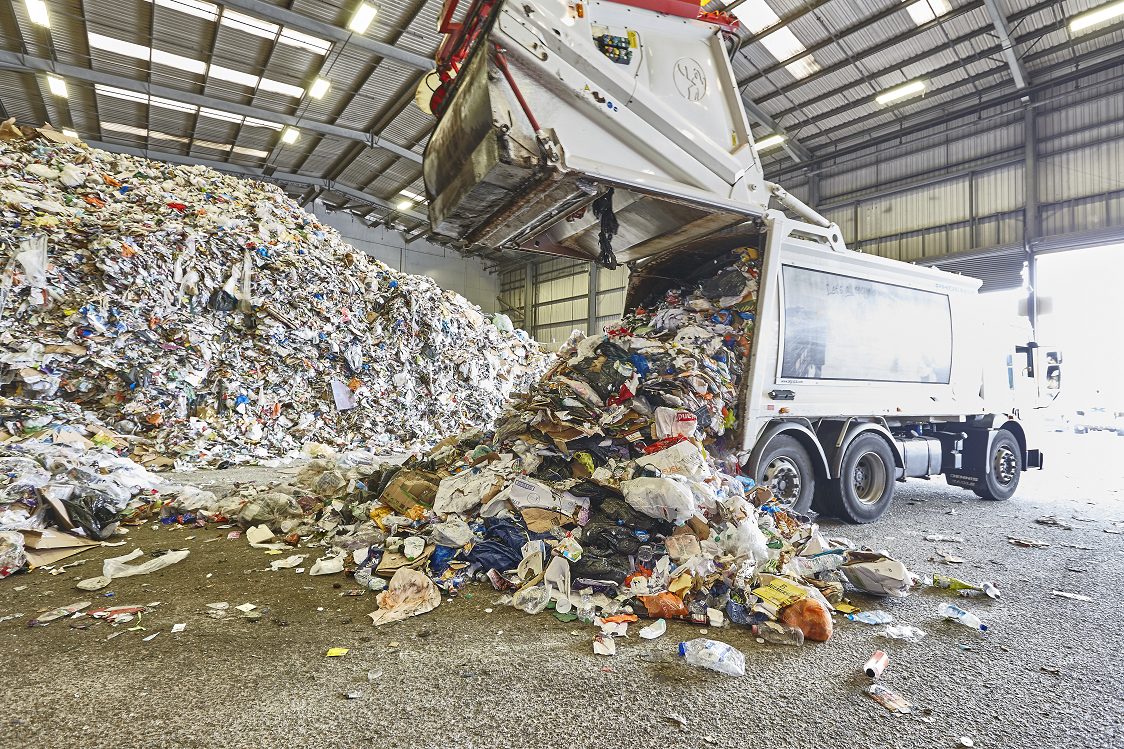North London sets zero landfill target and food waste reduction goals by 2040
North London Waste Authority approves a strategy to eliminate landfill use and halve food waste by 2040, following consultation with over 5,000 residents across seven boroughs.
 The North London Waste Authority (NLWA) has approved a new waste strategy covering 2025-2040, setting targets to eliminate direct landfill use and reduce food waste across seven boroughs serving two million residents.
The North London Waste Authority (NLWA) has approved a new waste strategy covering 2025-2040, setting targets to eliminate direct landfill use and reduce food waste across seven boroughs serving two million residents.
The strategy, covering Barnet, Camden, Enfield, Hackney, Haringey, Islington and Waltham Forest, includes targets to halve avoidable food waste in household rubbish, achieve a 50 per cent household recycling rate, and double the proportion of materials reused at recycling centres.
The plan follows public engagement over three years, with more than 5,000 residents contributing through consultation processes. Targeted outreach matched north London's demographics based on the 2021 census.
"We're delighted to have reached this crucial milestone, gaining endorsement from north London residents directly and through their elected representatives," commented NLWA Chair Councillor Clyde Loakes.
Food waste reduction targets
Analysis conducted for the strategy found that food comprises 32 per cent of north London's residual waste, with 74 per cent classified as avoidable. The strategy sets a target to reduce this avoidable food waste by 50 per cent.
All properties across the seven boroughs will receive weekly food waste collections by 2026, in line with government Simpler Recycling requirements, with NLWA already investing in new facilities to process the additional organic material.
The authority has also trialled food waste collection services for flats above shops, in a move towards addressing one of the collection challenges posed by a dense urban area like North London.
Landfill elimination commitment
The strategy commits the authority to sending zero waste directly to landfill by 2040, exceeding the national target of maximum 10 per cent municipal waste to landfill by 2035; landfill disposal for the area stood at 0.27 per cent of total waste in 2022-23.
The commitment relies on the new Edmonton EcoPark energy recovery facility, which will use waste to generate electricity and provide district heating for up to 60,000 homes and businesses. Recognising the scrutiny facing the new facility, NLWA says that when it is operational Edmonton will operate 60 per cent below European emission limits for nitrogen oxides, with continuous monitoring and environmental reporting.
Carbon capture plans and circular economy measures
NLWA is investigating carbon capture and storage technology for future installation at the Edmonton site. The authority has joined the Carbon Capture and Storage Association and is exploring partnerships to transport captured CO2 to North Sea storage facilities.
However, the strategy prioritises waste prevention and reuse activities through the North London Community Fund, which has invested over £600,000 in 59 local projects since 2017. In line with this, the authority plans to double the percentage of materials reused at its eight reuse and recycling centres.
The strategy also states that educational programmes will expand with a new schools programme supported by the opening of EcoPark House, an education and community centre on the site of the Edmonton EfW.
Urban recycling challenges
There are particular challenges posed by north London's urban geography, where 58 per cent of residents live in flats compared to 22 per cent nationally. As a result, limited garden space means the area collects less organic waste than rural authorities.
The strategy sets a target of 50 per cent household recycling by 2030, aligning with the Mayor of London's own Environment Strategy. Recent modelling indicates this will require support from national policy changes alongside local service improvements.
Furthermore, the joint document notes that achieving waste reduction goals requires action beyond local authority control. To address this, NLWA calls for government intervention on product design standards, Extended Producer Responsibility schemes, and manufacturer responsibility for disposal costs.
The authority raises concerns about government proposals to include energy from waste facilities in the UK Emissions Trading Scheme from 2028, which could add £23 million annually to NLWA's costs.
The authority advocates for policy reform focusing on waste reduction rather than recycling rates, arguing that proportional targets fail to capture environmental impact of total waste production.
The strategy represents £1.5 billion investment in new infrastructure designed to serve north London's population, expected to increase by six per cent by 2040.





